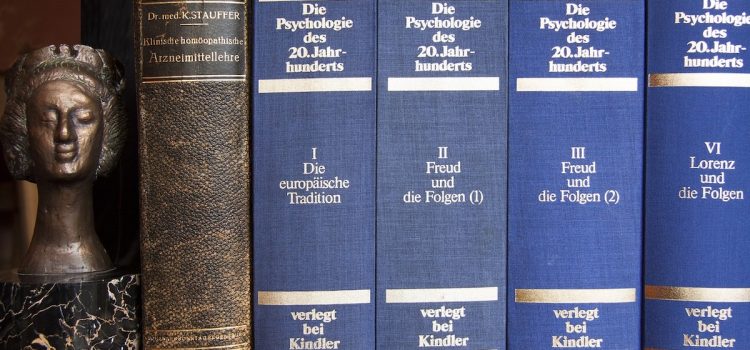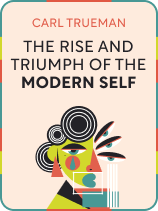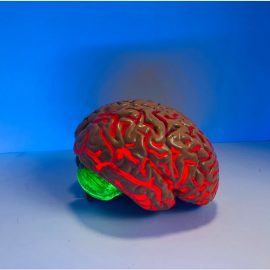

This article is an excerpt from the Shortform book guide to "The Rise and Triumph of the Modern Self" by Carl Trueman. Shortform has the world's best summaries and analyses of books you should be reading.
Like this article? Sign up for a free trial here.
What did Freud believe about identity and the self? How influential are his ideas?
In the 19th century, through the work of Sigmund Freud, sexuality came to form the center of human identity. In The Rise and Triumph of the Modern Self, Carl Trueman places this in a historical context, explaining how the concept of the self transformed over time.
Keep reading for an overview of Sigmund Freud’s philosophy about self.
Sigmund Freud’s Philosophy About Self
In The Rise and Triumph of the Modern Self, Carl Trueman states that the modern conception of the self didn’t appear overnight. Rather, it’s the result of three major developments stretching from the 18th to the 20th centuries: promoting the interior self (Rousseau and the Romantic poets), undermining the traditional view of human nature (Darwin, Marx, and Nietzsche), and sexualizing selfhood (Freud). Here, we’ll review Trueman’s analysis of Sigmund Freud’s philosophy about self.
The theories of prominent 19th-century psychologist Sigmund Freud brought sexuality to the very center of human identity. Freud posited that sexual impulses form much of the foundation of the unconscious mind. Trueman explains that, by placing sexuality at the center of identity, Freud further eroded the authority to restrict sexual behavior. According to the modern self, a good life is one where people are able to fulfill their authentic desires. Therefore, if sexuality is at the very center of psychology, then a good life will be one in which sexual desires are fulfilled.
(Shortform note: While he was one of the most famous intellectuals of his time, many of Freud’s ideas have since been debunked. Later psychologists re-evaluated his studies and found his methods unscientific: Freud didn’t develop falsifiable hypotheses or gather empirical data to support his theories. Some of Freud’s most controversial ideas include his contention that children experience sexual desire toward their parents and that women envy men for their penises, ideas that carry little weight in modern psychology. However, many would agree with Trueman’s assessment that Freud’s ideas were nonetheless influential, leaving their mark on public culture.)
Trueman highlights two areas where Freud’s theories posit sexuality as the center of identity.
1) Genital pleasure: According to Trueman’s analysis, Freud placed sexuality at the core of identity by describing genital pleasure as the psychological blueprint on which all other forms of happiness and satisfaction are modeled. The human mind innately understands sexual pleasure, and therefore other activities are only pleasurable if they provide a psychologically similar experience.
This led Freud to argue that sexual repression was the source of most psychological unhappiness. He saw the restriction of sexuality as a defining feature of civilization and reasoned, therefore, that unhappiness stems from participation in society. This fits neatly with Rousseau’s moral philosophy that society was a source of moral corruption.
(Shortform note: Mental health practitioners understand sexual repression a bit differently from Freud: They define sexual repression not by whether a sexual desire is fulfilled, but whether it’s accepted internally. People repress their sexuality when they grow up with messaging that their sexuality is not acceptable. Some researchers identify internalized discomfort with sexuality as a contributing factor to high rates of suicide among LGBTQ+ teens, which seems to support Freud’s correlation between psychological happiness and sexual repression.)
2) Sexualizing children: Trueman also states that Freud placed sexuality at the core of human identity by viewing children as inherently sexual. Freud maintained that problems of sexual repression began in early childhood and stemmed from a child’s relationship with their parents. Freudian psychology also sought to reframe childhood masturbation as a medical rather than moral concern. According to this view, children don’t become sexual beings as they enter puberty—they’re always sexual.
(Shortform note: Freud’s theory of child sexuality is based on his idea of the “Oedipus complex,” a theory that holds that children experience sexual attraction to their opposite-sex parent and jealous resentment of their same-sex parent. While most contemporary psychologists dismiss this theory, there is evidence supporting something called “sexual imprinting.” This theory posits that, as adults, people are more attracted to someone who resembles their opposite-sex parent. While the evidence is mixed, this has even been documented in rats, suggesting a biological explanation.)

———End of Preview———
Like what you just read? Read the rest of the world's best book summary and analysis of Carl Trueman's "The Rise and Triumph of the Modern Self" at Shortform.
Here's what you'll find in our full The Rise and Triumph of the Modern Self summary:
- How the modern conception of selfhood has changed over the centuries
- How Christian views have become stigmatized, damaging Western culture
- What modern Christians can do to preserve traditional values






